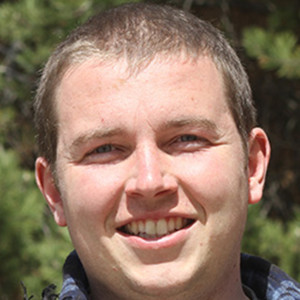By Seth Truscott, College of Agricultural, Human & Natural Resource Sciences
 PULLMAN, Wash. – Brandon Nickels, the 2015 Aggie of the Year at Washington State University, knows farming is hard. He also knows it’s for him.
PULLMAN, Wash. – Brandon Nickels, the 2015 Aggie of the Year at Washington State University, knows farming is hard. He also knows it’s for him.
Named the top senior majoring in agriculture or natural resource science in the College of Agricultural, Human and Natural Resource Sciences (CAHNRS), Nickels worked his way through college chasing every opportunity to embrace new experiences.
He graduates in May with a degree in agricultural and food business economics. And he continues to chase his dream: helping other farmers find success.
Below, Nickels answers questions about his CAHNRS experience, goals and the future of farming.
How did you become interested in agriculture?
I grew up just south of Burlington in Stanwood, Wash. My parents raised goats and pigs on a hobby farm, and my grandfather had a dairy farm. I got started in 4-H in second grade. I was in FFA in high school, and that’s what got me started with my Angus herd. I’ve managed to keep a small herd through college, and I go home when I can to help. My ultimate goal is to farm on my own.
What is challenging for farmers today?
The biggest challenge is that agriculture tends to be resource-heavy. A lot of infrastructure is needed to get the job done, and there are a lot of startup costs. You have to take your time. A lot of people run into failure when they try to rush.

Agriculture goes in cycles. If you take too much debt on at the wrong time, you could hit a cycle where you won’t be able to make payments. Start slow and support yourself with off-farm income until you’re ready.
There are also a lot of opportunities today with the local farm and local food movements that could support farmers getting their start. One of my favorite parts of farming is that it’s so challenging. A farmer has to play a lot of roles, wear a lot of hats: Financier, businessperson, worker, mechanic, veterinarian.
What are your plans after graduation?
I’ll start out as a credit officer trainee with Northwest Farm Credit Services at their Burlington, Wash. office. Customers bring me financial information about their operation. I’ll analyze how much we can loan to them.
My hope is to transition to a relationship manager role, where I do farm visits and see what I can do to improve their operation. It’s exciting to know that the last four years have been worth it.
What activities were you involved in at WSU?
I was part of the Student Swine Cooperative, Collegiate Young Farmers and Ranchers, and the International Development club. In my sophomore year, I did an internship at Circle Four Farms in Milford, Utah.
I studied abroad for a semester at Lincoln University in Christchurch, New Zealand. I also went to Brazil for a month. I work for CAHNRS Academic Programs as a part-time student assistant.
I was also part of CAHNRS Ambassadors all four years. When prospective students came to WSU, I was a face of the school. I gave students a perspective about experiences in CAHNRS.
What CAHNRS accomplishment are you most proud of?
Last May, I went to Rwanda with the School of Economic Sciences in partnership with the U.S. Agency for International Development. I studied the feasibility of organic certification for small coffee growers.
My Africa experience was much different from any I’d had. I enjoyed working with students at the National University of Rwanda and am still in correspondence with quite a few of them. I definitely wasn’t expecting something like this to happen at school.
With all this involvement, were there many late nights and early mornings?
Both, especially with work: I was a custodian at Beasley Coliseum, and that would go rather late after events. I would have to get up early (to work as a CUDS member).
What did you do in Cooperative of University Dairy Students (CUDS)?
CUDS was a big time commitment. It’s a student cooperative of about a dozen members. We own and manage a small herd of Holsteins at Knott Dairy Center, about 40 cows. Students are responsible for the feeding, milking and chores for their herd.
Milk is sent to the creamery to make cheese and ice cream, and they pay us for it. The hardest part is that in a group of 15, there are a lot of different ideas and interpretations.
What advice do you have for new CAHNRS students?
College is what you make of it. The time and effort you put into it is what’s going to come out of it. You can choose to stay in every night and watch Netflix or devote time to clubs and activities and apply for internships.
I didn’t get to participate in every opportunity I applied for, but I got to experience a lot. I applied, and that’s the biggest step.
Learn more
• The Aggie of the Year award recognizes students who show a balance between academic achievement, leadership and extracurricular activity. It’s one of 17 student and faculty honors awarded at the CAHNRS honors banquet, held March 26 at the SEL Event Center in Pullman. Learn more about the awards at http://cahnrs.wsu.edu/academics/college-awards/
• Learn more about student clubs and involvement at http://cahnrs.wsu.edu/academics/student-life/clubs/
• Learn more about the College of Agricultural, Human and Natural Resource Sciences at http://cahnrs.wsu.edu/
Contact:
Seth Truscott, WSU CAHNRS public relations/communications, 509-335-8164, struscott@wsu.edu